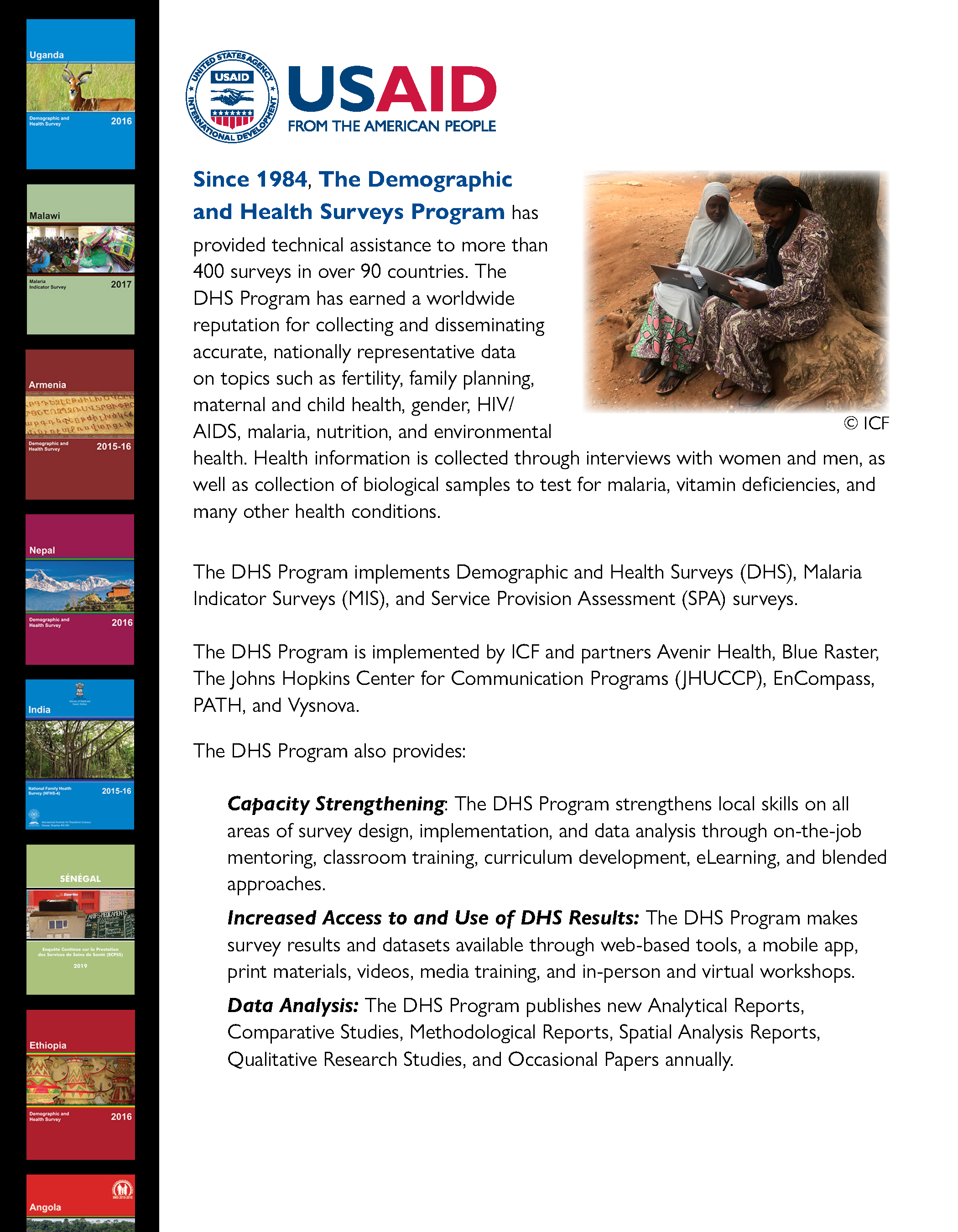Press Releases
Parental violence and husbands' alcohol use are major indicators of domestic violence, global report finds
Calverton, MD – A family history of domestic violence and husbands’ alcohol use increase the risk that women will be abused by their husbands or partners, according to a new study from Demographic and Health surveys in 10 countries. The study found that women are significantly more likely to experience intimate partner violence if their husbands or partners got drunk very often compared to women whose partners never drank alcohol or never got drunk. Similarly, women who saw their fathers beat their mothers are significantly more likely themselves to be abused than women who did not see violence between their parents. Worldwide, domestic violence is disturbingly common, even among women with neither of these risk factors, the new study reports.
The study, Intimate Partner Violence among Couples in 10 DHS Countries: Predictors and Health Outcomes, is based on 10 recent Demographic and Health Surveys conducted in Bangladesh, Bolivia, the Dominican Republic, Haiti, Kenya, Malawi, Moldova, Rwanda, Zambia, and Zimbabwe. The new study focuses on married or cohabitating women age 20-44.
Intimate partner violence varies widely in these countries. Domestic abuse is most common in Bangladesh where 75 percent of women have been beaten by their partners compared to 52 percent in Bolivia, 45 percent in Zambia, 15 percent in the Dominican Republic and 12 percent in Haiti. One in every three Bangladeshi women experienced physical or sexual spousal violence in just the 12 months before the survey, compared to 10 percent of women in the Dominican Republic.
The consequences of spousal violence can be severe. In 8 of the 10 countries, for example, abused women are statistically more likely to have an unintended pregnancy than women who have not been abused. In 6 of the 10 countries, abused women are more likely to report a history of abortion, miscarriage, or stillbirth than those who had never experienced violence.
The Demographic and Health Surveys are funded by the United States Agency for International Development through the MEASURE DHS project and are implemented by Macro International Inc. in Calverton, Maryland.
